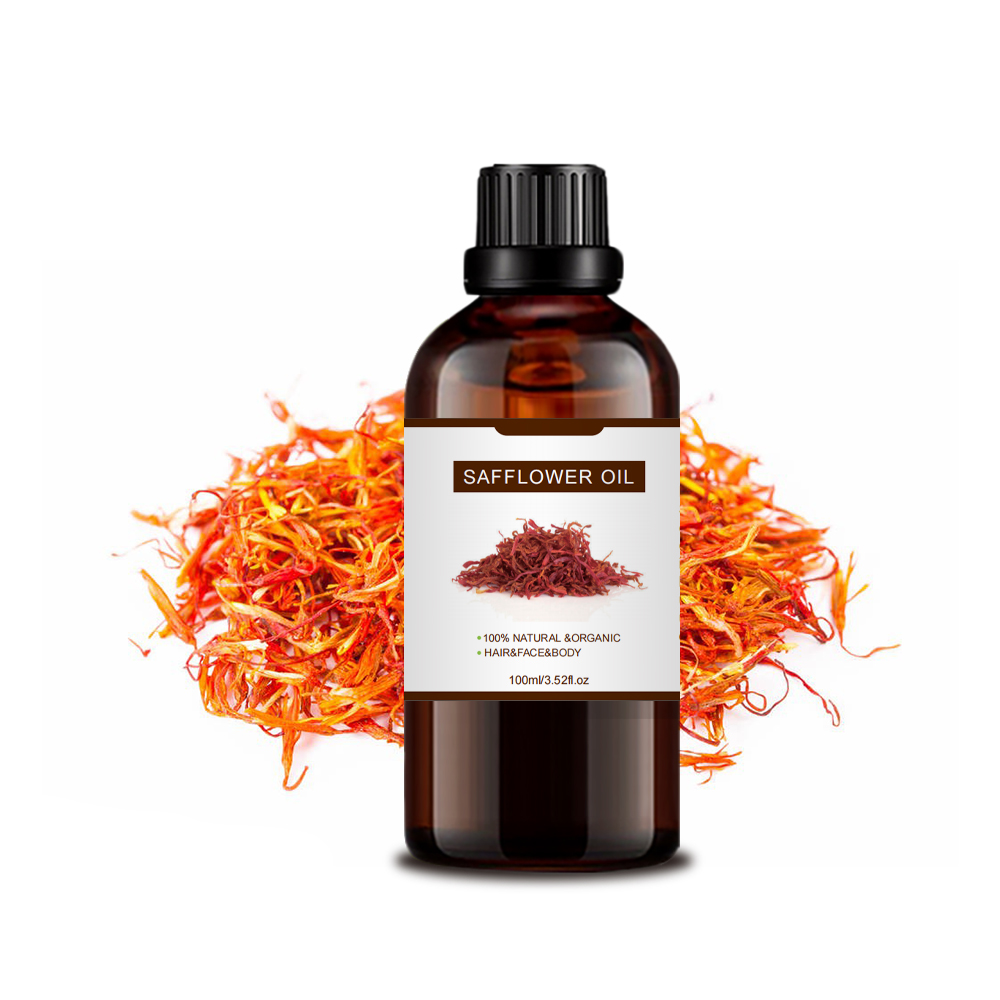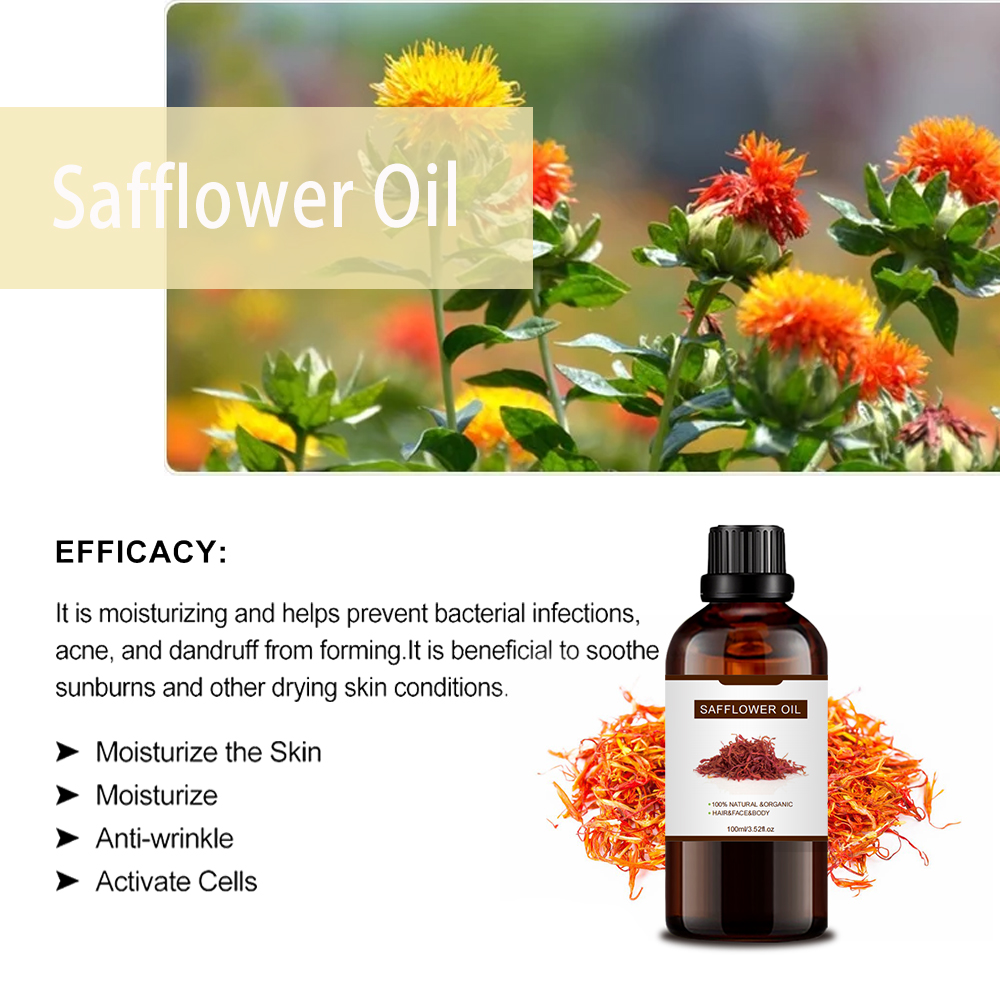What Is Safflower Oil?
Safflower is considered to be one of the oldest crops in existence, with roots tracing all the way back to Ancient Egypt and Greece. Today, the safflower plant remains an important part of the food supply and is often used to make safflower oil, a common cooking oil that is also used to make a variety of processed foods , skincare products and more.
Not only is the oil widely used in cooking, but it’s also often used to produce margarine and certain processed products like salad dressings. It’s also found in a variety of skincare products and cosmetics, which is due to its ability to moisturize the skin and reduce inflammation.
In addition to its mild flavor, high smoke point and vibrant color, safflower is also naturally non-GMO and boasts a rich nutrition profile. In fact, each serving is high in heart-healthy monounsaturated fats, omega-6 fatty acids and vitamin E.
Benefits
1. Promotes Skin Health
Many people use safflower oil for skin health, thanks to its ability to soothe and moisturize dry skin. For this reason, safflower oil is commonly added to skincare products and cosmetics due to its skin-boosting benefits.
In addition to supplying a hearty dose of anti-inflammatory antioxidants, it’s also rich in vitamin E.
2. Good for High-Heat Cooking
Safflower oil has a smoke point of about 450 degrees Fahrenheit, which means that it is able to withstand very high temperatures without breaking down or oxidizing. This makes safflower oil for cooking a great choice, especially when using high-heat methods like frying, roasting or baking.
3. Improves Cholesterol Levels
Safflower oil is rich in unsaturated fats, which are a heart-healthy form of fat that have been linked to reduced cholesterol levels. They are especially high in monounsaturated fats, which have been shown to decrease levels of total and bad LDL cholesterol, both of which are major risk factors for heart disease.
4. Stabilizes Blood Suga
Safflower oil benefits blood sugar control and may even reduce the risk of diabetes-related complications. For example, a study conducted by Ohio state university found that consuming safflower oil daily for 16 weeks led to significant reductions in hemoglobin A1C, which is a marker used to measure long-term blood sugar control.
5. Decreases Inflammation
Chronic inflammation is believed to be at the root of a number of different diseases, including autoimmune conditions, heart disease and cancer. Some studies have found that safflower oil may possess powerful antinflammatory properties and can help reduce several key markers of inflammation.
How to Use
Keep in mind that these amounts should include other healthy fats as well, including nuts, seeds, avocados, nut butter, grass-fed butter and other types of vegetable oil.
If you’re following a ketogenic diet or are very active, these amounts may be a bit higher for you.
Safflower oil is ideal for high-heat cooking methods like roasting, baking and frying. Because of its distinct color and aroma, it can even be used as a budget-friendly saffron substitute in certain dishes as well.
For topical use, simply add a few drops of the oil to dry, rough or scaly areas of the skin. Alternatively, try mixing it with a few drops of essential oil, such as tea tree or chamomile, and massaging onto the skin
Conclusion
- Safflower oil is a type of vegetable oil made from the safflower plant. It is commonly used for cooking and added to margarine, salad dressing and skincare products.
- Some of the potential safflower oil benefits include better blood sugar control, reduced cholesterol levels, decreased inflammation and enhanced skin health.
- Because it has a high smoke point, it can also be used for high-heat cooking methods like frying or roasting without breaking down or oxidizing.
- In high amounts, it could contribute to weight gain and inflammation. It may also interfere with blood clotting for those with bleeding disorders.
- To start taking advantage of the potential benefits of safflower, try incorporating it into your natural skincare routine or swapping it in for other fats in your diet.
Post time: Aug-02-2023





